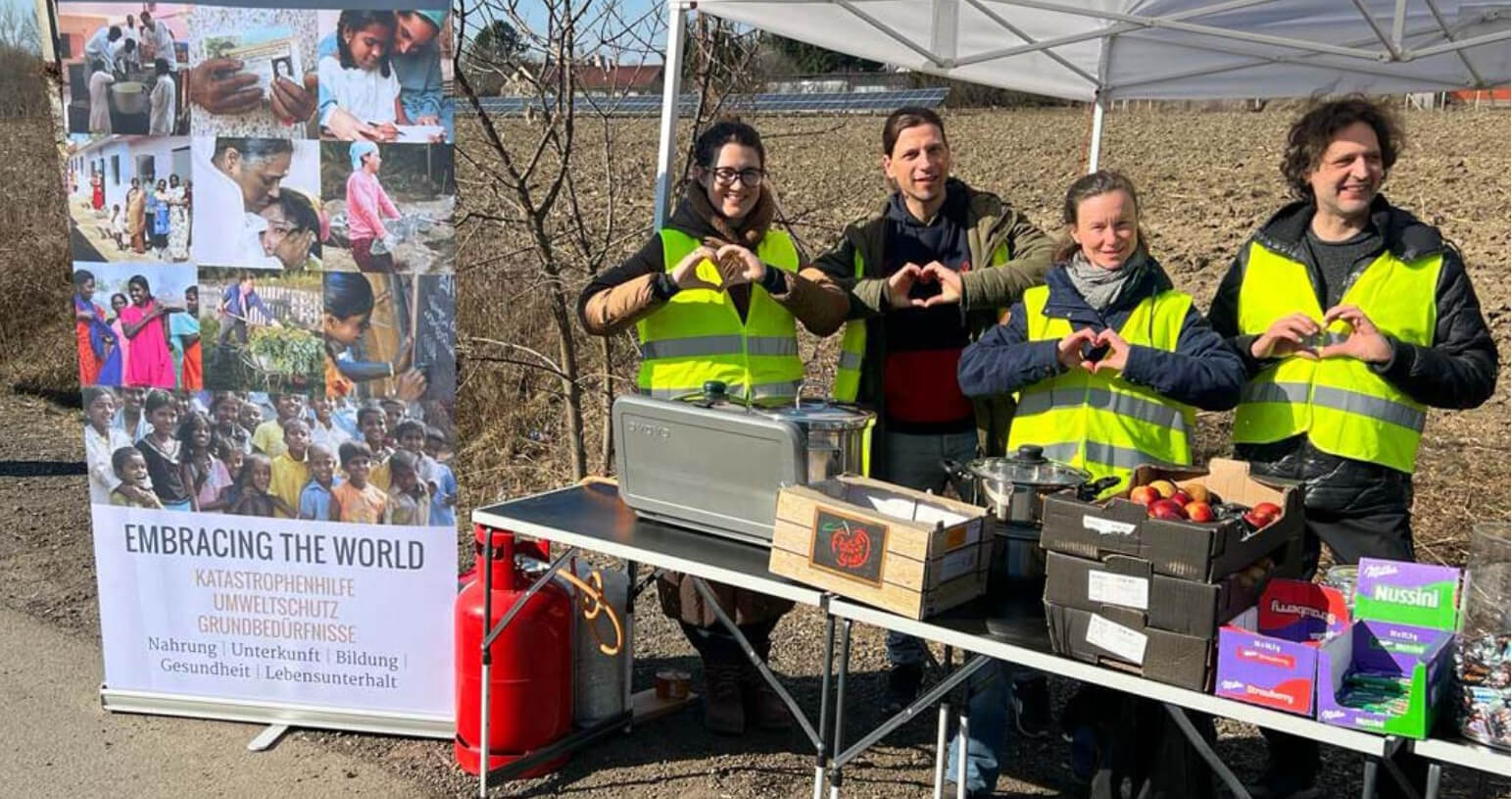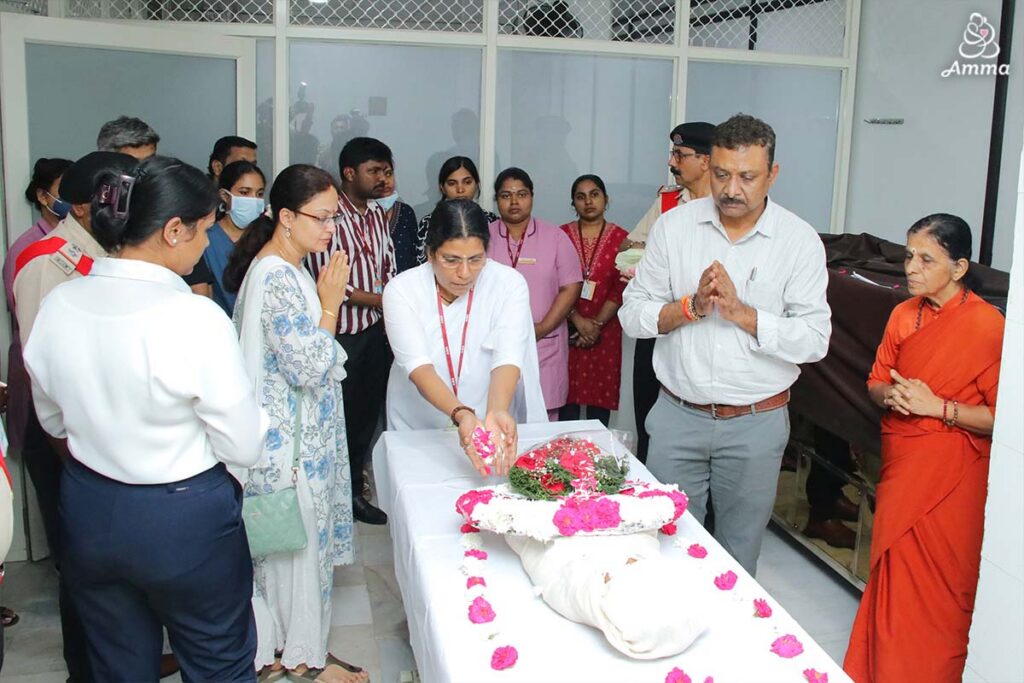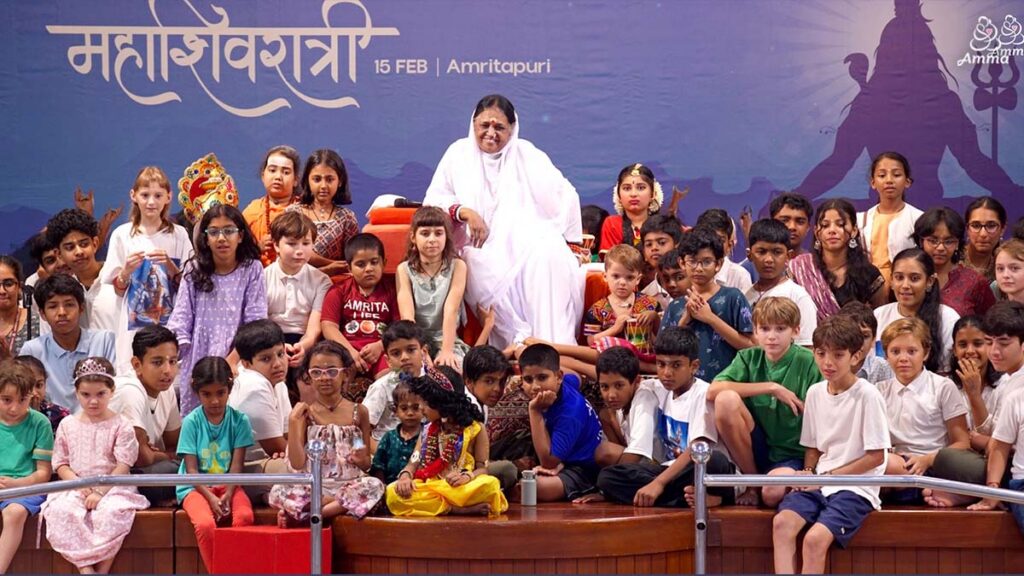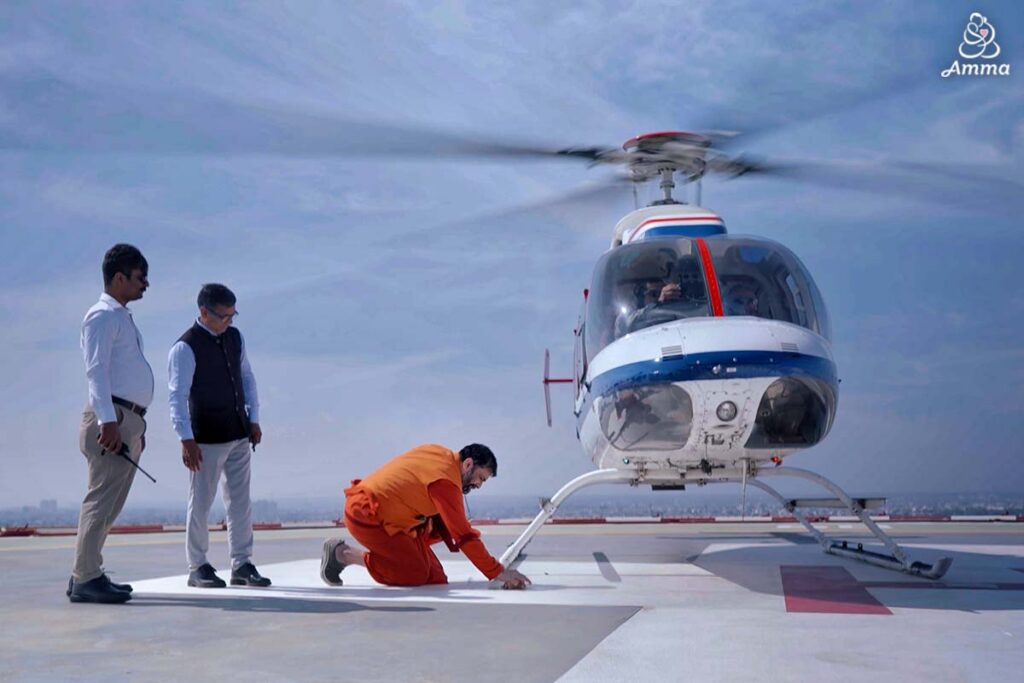Vienna is just a five-and-a-half hour drive to Tiszabecs, a village on the eastern edge of Hungary next to the Ukrainian border. After hearing that hundreds of refugees were arriving there, six volunteers with Embracing the World in Austria decided to set up camp to provide hot drinks, food, and counsel on next steps. The stall opened on March 12th.
“People come in cars packed with five people and their pets. We have a car passing every three to five minutes,” says Sarah Straub, one of the volunteers. In addition to how to proceed to their next destinations, the ETW stall provides references for medical and psychological support. It is the first point of contact after crossing the border.
“For us in Austria, especially living in Vienna in the very east of Austria, we are only a few kilometers away from Hungary. We feel geographically very close to this war. So the idea was to spread some hope by building a presence at the border when they arrive.”
Andreas Mersa is working side-by-side with Straub. He shares the story of a young woman who was happy to get out of her car after waiting many hours on the Ukrainian side. She came to get a cup of tea and shared that she had to make the decision to leave her parents behind in Ukraine, as they did not want to go. Her brother is in Hungary and asked for them to come stay with him.
“She felt very guilty because her parents decided to stay and she had to decide whether to flee or to stay with her parents,” says Mersa. “She told us about her Facebook group. It was meant to connect people in a particular area of her hometown. Now it is used to post pictures of the deceased to inform people about their lost loved ones.”
It may sound small to simply provide something to eat and drink, alongside some words of comfort and advice. But it is an expression of support that brings relief to the people arriving from Ukraine. The refugees have just fled war, and when they first cross the border, they still carry that fear.
“You can see that they are emotionally shut and frozen. But once you approach them with a smile and a sweet in your hand and something warm to drink, they all of a sudden start relaxing,” says Barbara Caretta, another volunteer.
“Most of the time, especially for the mothers, if they have small children in the back of the car, you see the tears in their eyes. And they really start crying. And you see the tension they were holding until that point, it starts releasing.”
Rudi Risatti is also part of the team at the Hungarian border. When they first opened the stall, it was very busy. Each day, about 130 or 140 groups of people in cars and then, about 20 people travelling on foot. Now some days traffic reduces to about 50 cars, but the next day goes up to about 100 again. The team has decided to remain in place, as no one knows what the next moment may carry.
“Most of the refugees we see, something like 95%, are leaving behind their fathers, sons or brothers who have to stay in Ukraine to defend the country,” says Risatti.
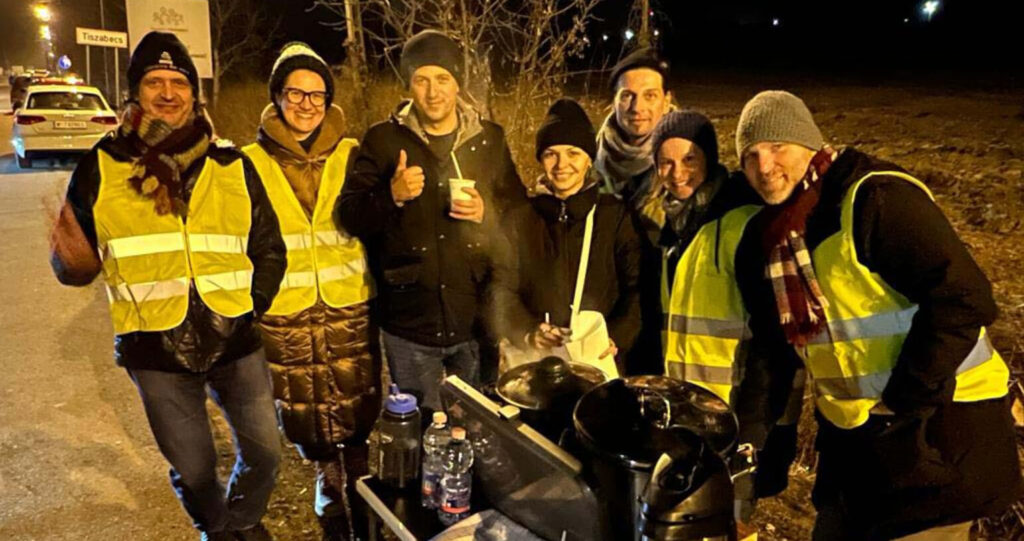
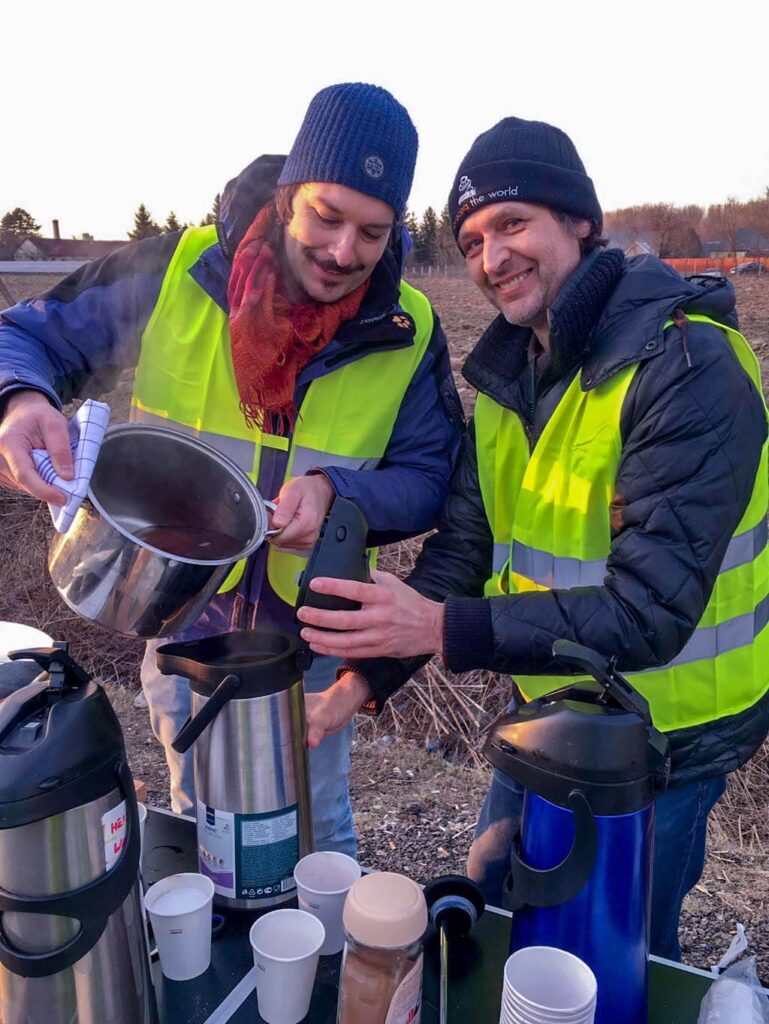
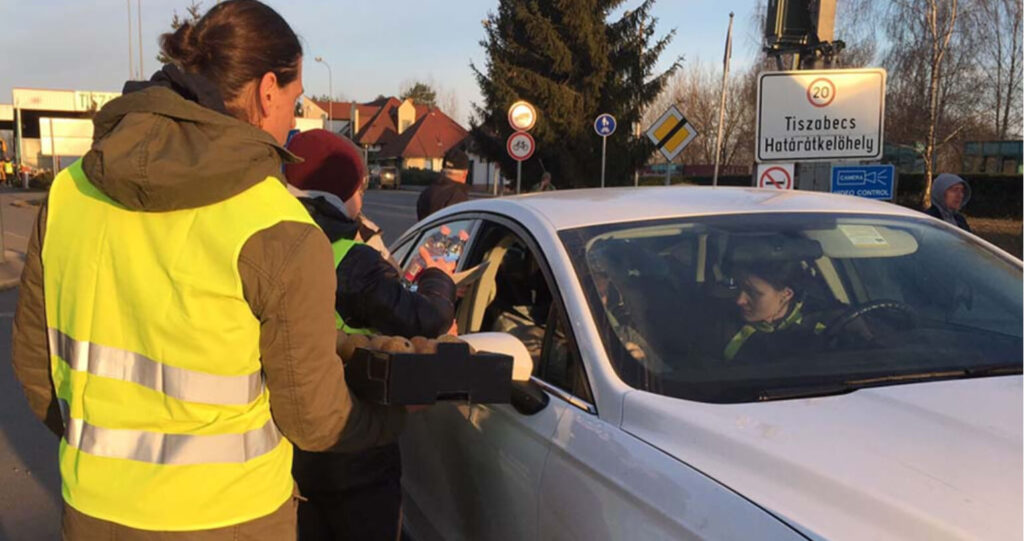
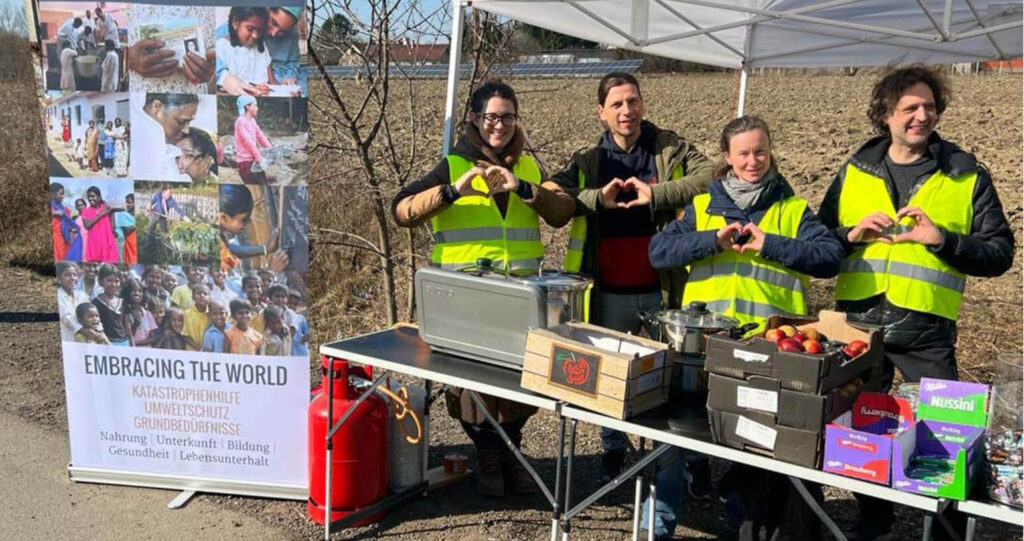
“We see mostly families, children, elderly people. They are sad and they just need some relief. If we meet them and just give them something – give some chocolate to the children – they are very touched. It’s a joy to do this service.”
The volunteers stay in a bed and breakfast about 18 kms from the border station. It’s run by a local family who cares for them very well. There, they have a small kitchen where they can heat up food in the evening. For lunch while at the border, they have a gas cooker where they make some pasta to eat.
It did not take long for word of this noble act of service to inspire Embracing the World volunteers in other parts of Europe. People from Italy, Spain, France, and Belgium have already decided to travel to Hungary and offer their support. Raffaella Cairoli arrived from Italy the previous night.
“We are here to show the refugees that we came from far away to offer them a coffee and our solidarity. We provide support and we provide love. And they are touched by that. And for a few seconds they can feel that there are people who will do this for them,” she says.
Every team member is grateful for this opportunity to be of service to the refugees. Because the conflict came just as the COVID-19 pandemic began to decline, it was not certain if they had the stamina and resources to set up at the border. But, somehow, everything fell into place.
“Amma’s teachings to love and serve became our experience here. If something is done from the heart, you somehow get the strength. On a human level, it’s a very enriching experience.” says Straub.
“Seeing people flee from their country gives me an impression that peace is nothing to rely upon, nothing to take for granted. Peace is precious and we shall never forget about that.”
Volunteers across Europe are coordinating donations for essential aid and helping to provide accommodation for refugees.
MA Centres across Europe:
Centre Amma, Ferme du Plessis (France)
28190 Pontgouin
centreamma@etw-france.org
Centre Amma-Lou Paradou (France)
RN7, 83170 Tourves
contact@amma-louparadou.org
MA Centre Germany
Seminarzentrum Hof Herrenberg e.V.
Hof Herrenberg 1
64753 Brombachtal
info@ammazentrum.de
Amma Zentrum München (Germany)
Wehrlestraße 27, 81679 München
muenchen-info@amma.de
Centro Amma (Spain)
Masia Can Creixells/n, 08784 Piera, Barcelona
info@amma-spain.org
MA Centre Switzerland
Ziegelhütte 1, CH – 8416 Flaach
mail@macenter.ch
MA Centre Holland
Driebergseweg 16 A, 3708 JB Zeist
centrum@amma.nl
MA Centre UK
40a Letchworth Drive, Bromley BR2 9BE
info@amma.org.uk
Centrum van Amma België (Belgium)
Broekstraat 6, 9140 Tielrode, Belgium
vriendenvanamma@telenet.be


